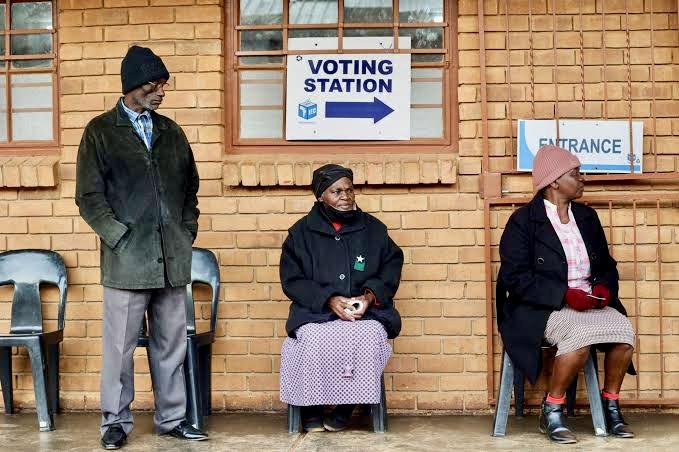
Faith Nyasuguta
South Africans have taken to the polls today, Wednesday, casting their votes at various locations, including schools, community centers, and makeshift tents in open fields, marking what is being considered as the nation’s most significant election in three decades.
The outcome of this election could steer the trajectory of South Africa’s young democracy into uncharted territory.
Central to this election is the African National Congress (ANC) party, which has held power for thirty years since leading the country out of apartheid in 1994. However, a new wave of discontent, particularly among the younger generation in a nation where half of the 62 million population lives in poverty, threatens the ANC’s long-standing dominance.
Despite being Africa’s most advanced economy, South Africa grapples with deep-rooted socioeconomic challenges, including staggering unemployment rates, with approximately 32% of the population without jobs. The persistent inequalities, especially affecting the Black majority, have eroded confidence in the ANC, which initially promised to address these disparities during the apartheid era.
The electorate is keenly aware of the power of their vote, with many emphasizing the importance of using their voice to demand solutions to pressing issues like unemployment. This sentiment is reflected in recent polls, which indicate a decline in ANC’s support, potentially jeopardizing its parliamentary majority for the first time since 1994.
President Cyril Ramaphosa, the leader of the ANC, has acknowledged the need for improvement and has appealed for patience from voters. However, the prospect of the ANC losing its majority could usher in a new era of coalition politics, a scenario unprecedented in South Africa’s post-apartheid history.

Unlike directly electing a president, South Africans vote for political parties, which then secure seats in Parliament based on their share of the vote. The ANC has historically commanded a majority in Parliament, but this election could disrupt that status quo.
With nearly 28 million registered voters across nine provinces, the election is a pivotal moment for the country. While opposition to the ANC is fervent, it remains fragmented, with parties like the Democratic Alliance and the Economic Freedom Fighters unlikely to unseat the ANC.
However, discontent with the ANC has spurred the emergence of numerous opposition parties, including one led by former President Jacob Zuma. Despite facing disqualification from standing as a candidate, Zuma’s party presents a wildcard in an already unpredictable election landscape.
The ANC expresses confidence in maintaining its majority, leveraging its decades of governance experience and grassroots support. Yet, the electorate’s discontent, particularly among younger and urban voters, poses a formidable challenge to its hegemony.
Memories of apartheid still linger in South Africa’s collective consciousness, shaping the narrative of this election. However, as time passes, the electorate increasingly comprises a generation born after apartheid’s demise, whose voices could redefine the country’s political landscape.
This election reflects the nation’s stark contradictions, from the bustling economic center of Johannesburg to the scenic beauty of Cape Town and the stark realities of informal settlements. Despite some logistical challenges, South Africa has a track record of conducting peaceful and credible elections, reinforcing its democratic credentials.

To ensure a peaceful electoral process, authorities have deployed nearly 3,000 soldiers across the country. South Africa’s multiracial and multicultural fabric, epitomized by Nelson Mandela’s vision of a “Rainbow Nation,” is now reflected in its diverse political landscape, with a multitude of voices vying for representation and change.
RELATED:




